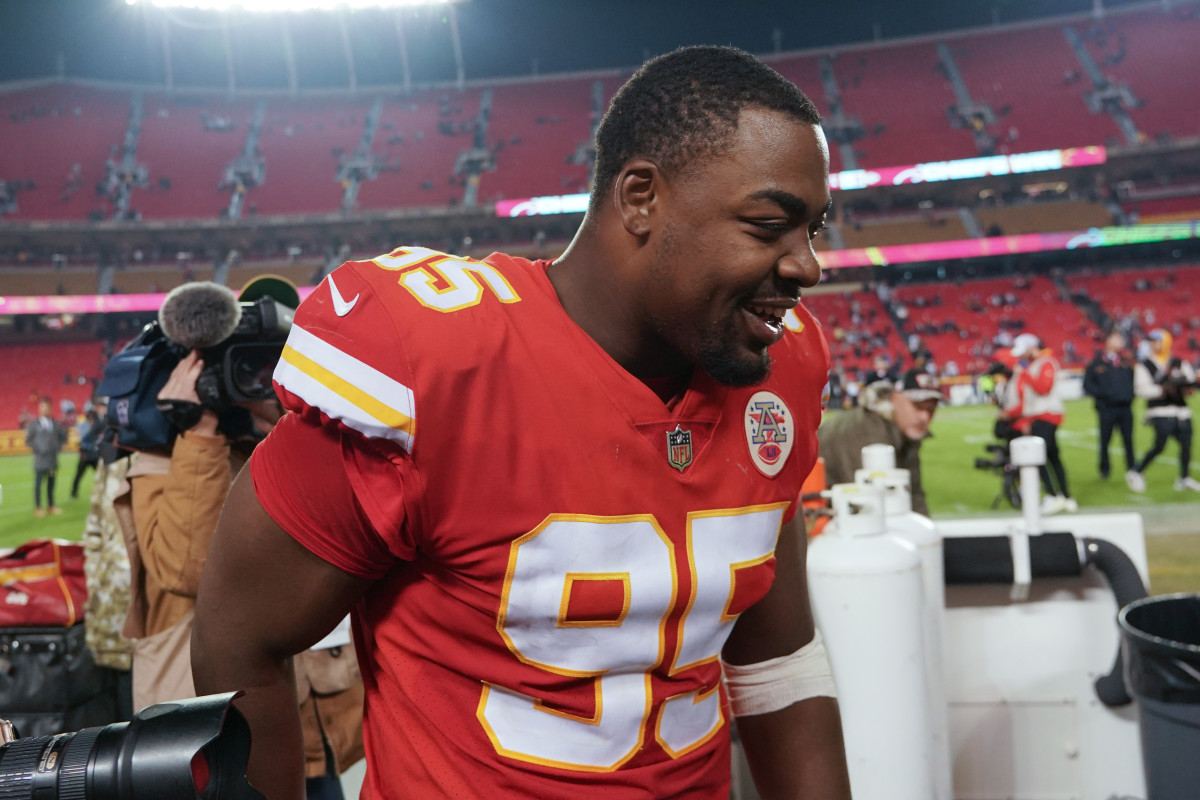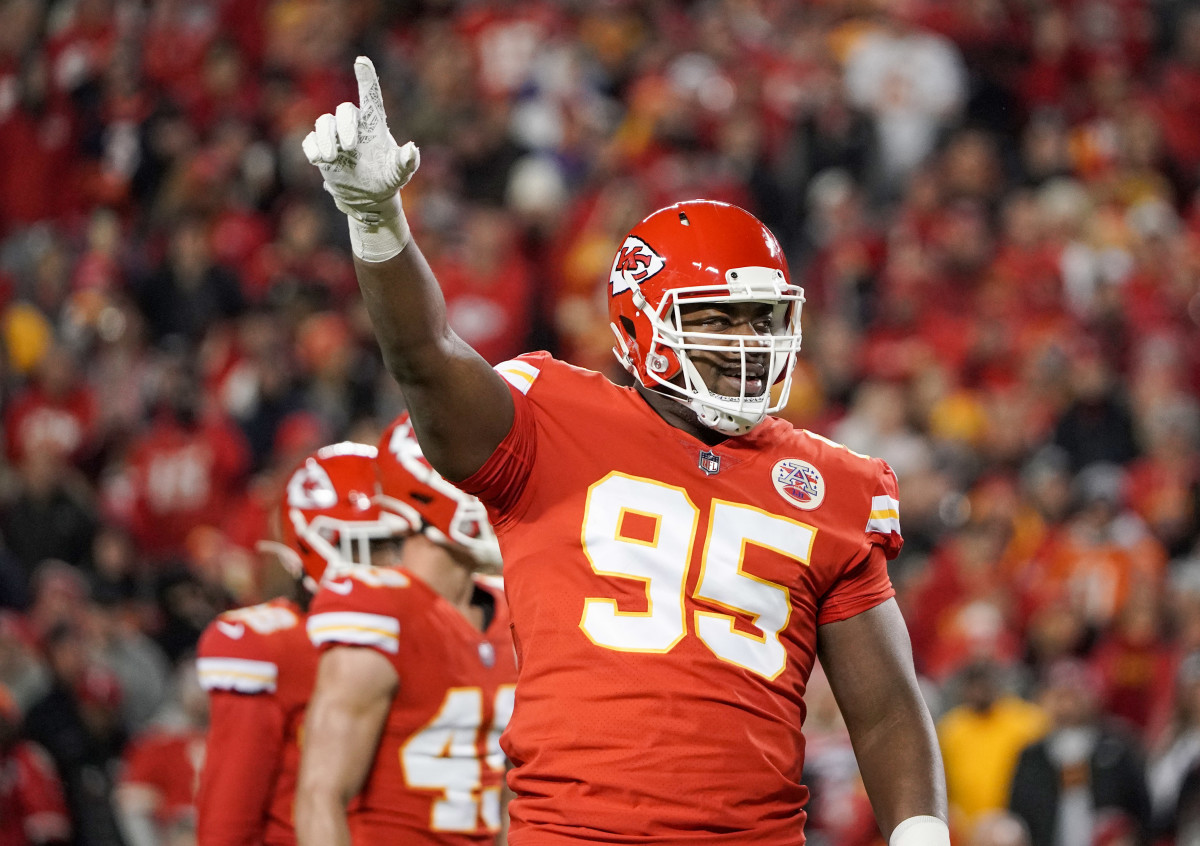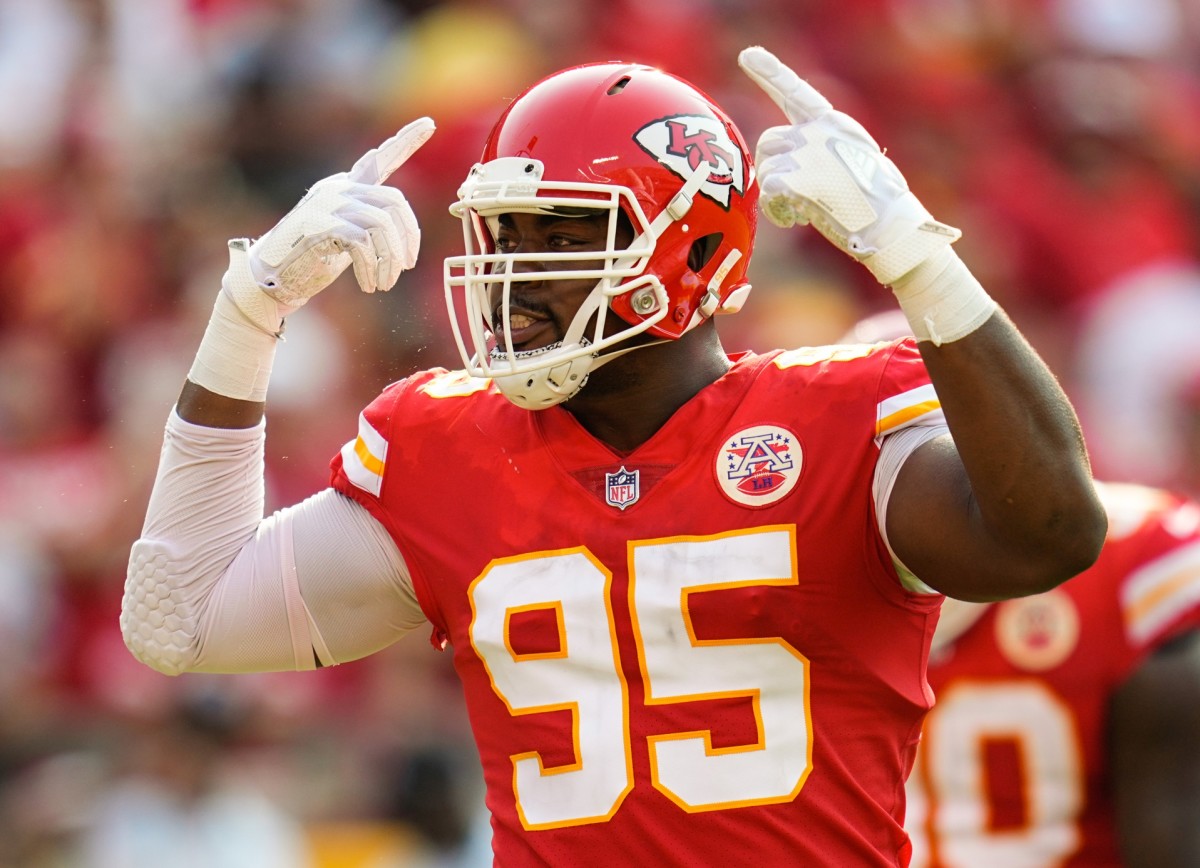Could Chris Jones Be the Tyreek Hill of Next Offseason?
After a major shift this offseason, another Kansas City Chiefs franchise player might be on the move in the near future.
While it is hard to imagine Chris Jones playing elsewhere, the Chiefs could end trading him next offseason — much like they did with Tyreek Hill this offseason. The same factors that led to Hill being traded are there with Jones, and the rest depends on what Jones values.

Hill and Jones have very similar circumstances surrounding them as both headed into the end of their contract. Both were (are) 28 years old, both have elite talent, and both are making a lot of money in the last year of their respective deals.
Hill’s large salary cap number this season was a major reason why the Chiefs wanted to negotiate a new contract with him. Those negotiations accelerated the reality that a future with Hill on the team was impossible. The Chiefs were just not willing to — or able to — pay him the money he thought he was worth.
During the 2023 offseason, the Chiefs will have a similar dilemma with Jones. Jones’ salary cap hit of $27.2 million will be identified by general manager Brett Veach as a way the Chiefs could manufacture plenty of salary cap room. With an extension, part of the base salary for the year the contract was signed will be turned into a signing bonus to spread out that money over the years on the new extension. This will lower Jones’s salary cap hit to a more manageable number, most likely around a salary cap hit of $15M.
Except, just like Hill, is the "aging" Jones someone the Chiefs will pay a premium to keep around?

Recently, it has seemed as if the Chiefs have been reluctant to pay aging players top-dollar contracts. Hill and Tyrann Mathieu were both examples of this. Jones already has the highest salary cap hit among all interior defensive linemen in the league in 2023, and his last extension averaged $20M a year. What happens if he comes to the negotiating table asking for $23M per year next? In that scenario, it seems more likely the Chiefs do exactly what they did with Hill: opt for a trade.
Barring a down year for Jones, trading him next offseason should return a quality stable of draft picks. It will not be to the same level as Hill — as Hill’s talent and position are both more valuable than that of Jones — but the trade would return at least one Day One or Day Two draft pick. If Veach and Jones do not see eye to eye on a contract and Veach is committed to the youth movement the Chiefs are currently undergoing, then trading the star defensive tackle is an appealing option.
The calculus Veach has to weigh is whether Jones is worth the money and draft capital that trading him would provide. One or two highly-drafted rookies and salary cap room for two solid role players signed through free agency would equal Jones in this equation. It isn't hard to imagine the things the Chiefs could do with the assets acquired by executing a trade.
There are a few elements to the Jones situation that do differ from Hill, however.

The principle difference is that Drew Rosenhaus is not Jones’s agent. Rosenhaus, who is Hill’s agent, is famous for maximizing the money a player gets in contracts. If Jones comes to the table with Veach and capitulates on a contract that has some team-friendly structures, there's a possibility that both sides find a way to make it work.
Another reason the Chiefs might be amiable to an extension with Jones is they will have more flexibility with the salary cap next year compared to this year. After Frank Clark is cut next offseason, the Chiefs are currently projected to have $39M in salary cap space (according to OverTheCap.com). With the salary cap expected to explode, there should be room to fit in Jones. Funnily enough, trading Hill might've saved enough money to keep him.
Jones and his contract situation will be an interesting narrative to follow over the next year. Will Jones’s contract negotiations follow the steps of Hill, or those of Travis Kelce?
I'm here for life
— Chris Jones (@StoneColdJones) March 29, 2022
Right now, it's hard to say.
